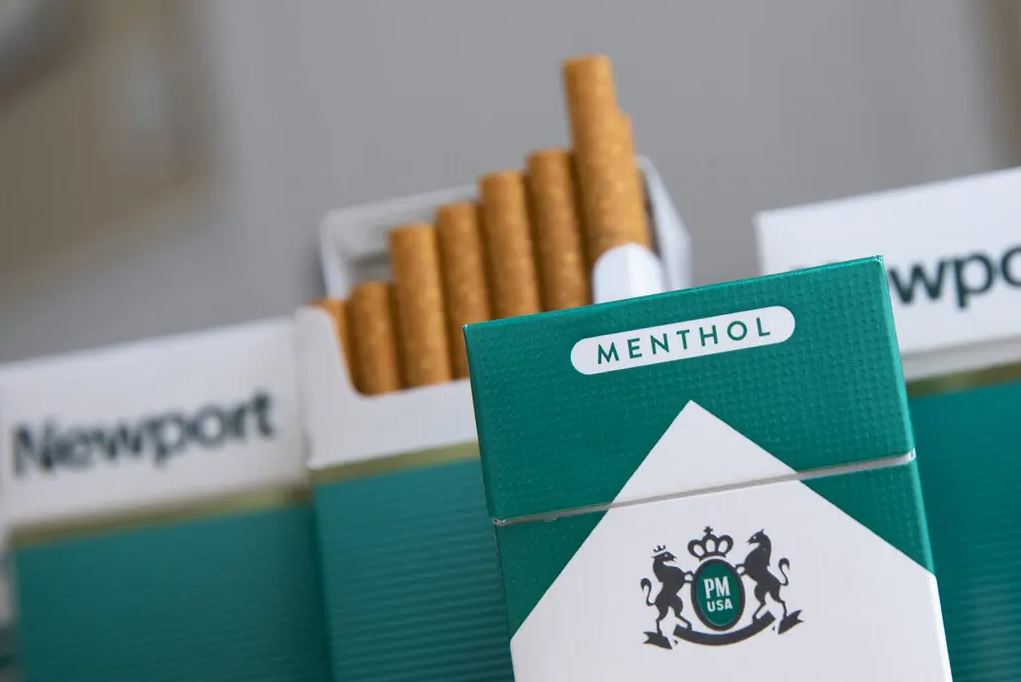After more than a decade of tobacco control efforts, the Food and Drug Administration said on Thursday that it intends to outlaw the sale of menthol-flavored cigarettes in the United States. Many public health experts praised the move as the government’s most significant step in decades.
According to a government poll, the prohibition would have the greatest effect on Black smokers, who account for approximately 85 percent of menthol cigarette users compared to just 29 percent of white smokers, making them the most vulnerable. If the ban is successful in lowering smoking, it has the potential to drastically reduce the burden of chronic illness while also reducing the number of lives taken too soon by one of the most dangerous legal items available.
When menthol is added to cigarettes, it softens the mouthfeel, provides a cold feeling in the throat, and makes the experience more pleasurable. Menthol is derived from the mint plant but may also be synthesised in a laboratory. Menthol cigarettes account for around one-third of the $80 billion U.S. cigarette industry, with over 18.5 million smokers in the country.
Xavier Becerra, the health and human services secretary, said that banning them “would help prevent youngsters from becoming the next generation of smokers and assist adult smokers stop.” He also stated that it would drastically decrease tobacco-related mortality among Black people.
An outpouring of lobbying by the cigarette and retail industries culminated in the announcement of the planned ban. Tobacco company executive Kingsley Wheaton, who heads the marketing department for British American Tobacco, which owns Reynolds, the leading seller of menthol cigarettes in North America, stated that the company believed there were more effective ways to reduce the risk of tobacco use than banning menthol.
Menthol cigarettes, according to public health experts, have been aggressively promoted to Black people, with deadly consequences: African American males have the highest rates of lung cancer in the United States, according to the Centers for Disease Control and Prevention (CDC).
The draught rule for the prohibition will be published in the Federal Register on May 4 and will be available for public comment for at least 60 days after that, after which it will be finalised, with potential amendments, after which it will be finalised. In addition, the Food and Drug Administration said that it will hold hearing sessions in June to solicit feedback from the public on the idea.
It is anticipated that it will take at least a year to be fully implemented. The cigarette industries are expected to challenge the regulation in court, which might result in a lengthy legal struggle and more delays. Unofficial statements from Philip Morris USA, which accounts for approximately 9 percent of all menthol cigarettes sold in the United States, warned that banning menthol cigarettes would drive the products into illegal, underground markets with no oversight and potentially harmful health consequences.
Public health groups have been advocating for a menthol ban for quite some time. As part of the historic Tobacco Control Act, which gave the Food and Drug Administration the ability to control cigarette products, menthol was spared from the list of tobacco flavours that would be prohibited.
A coalition of public health organisations and a cadre of former United States cabinet health secretaries were outraged by the exception, which they attributed to the 47,000 Black lives lost each year to smoking-related illness.
It is “shameful,” according to Carol McGruder, co-founder of the African American Cigarette Control Leadership Council, that Mr. Sharpton and others accept tobacco financing. She said that there is a genuine need for police reform, but that the amount of lives lost too soon by menthol tobacco is considerably larger.
The idea that we could cynically use our suffering and say, ‘Oh, we want to protect you from that by keeping these items on the market that are killing you’ is absurd, according to Ms. McGruder.
Mr. Sharpton said in an interview that his opposition to the ban is not driven by financial considerations, but rather by serious worry about how the prohibition would be implemented in Black areas by local police. According to him, “you can’t pay me to take an opinion.”
In its declaration, the Food and Drug Administration said unequivocally that it “cannot and would not enforce against individual consumers for possession or use of menthol cigarettes or flavoured cigars.”

